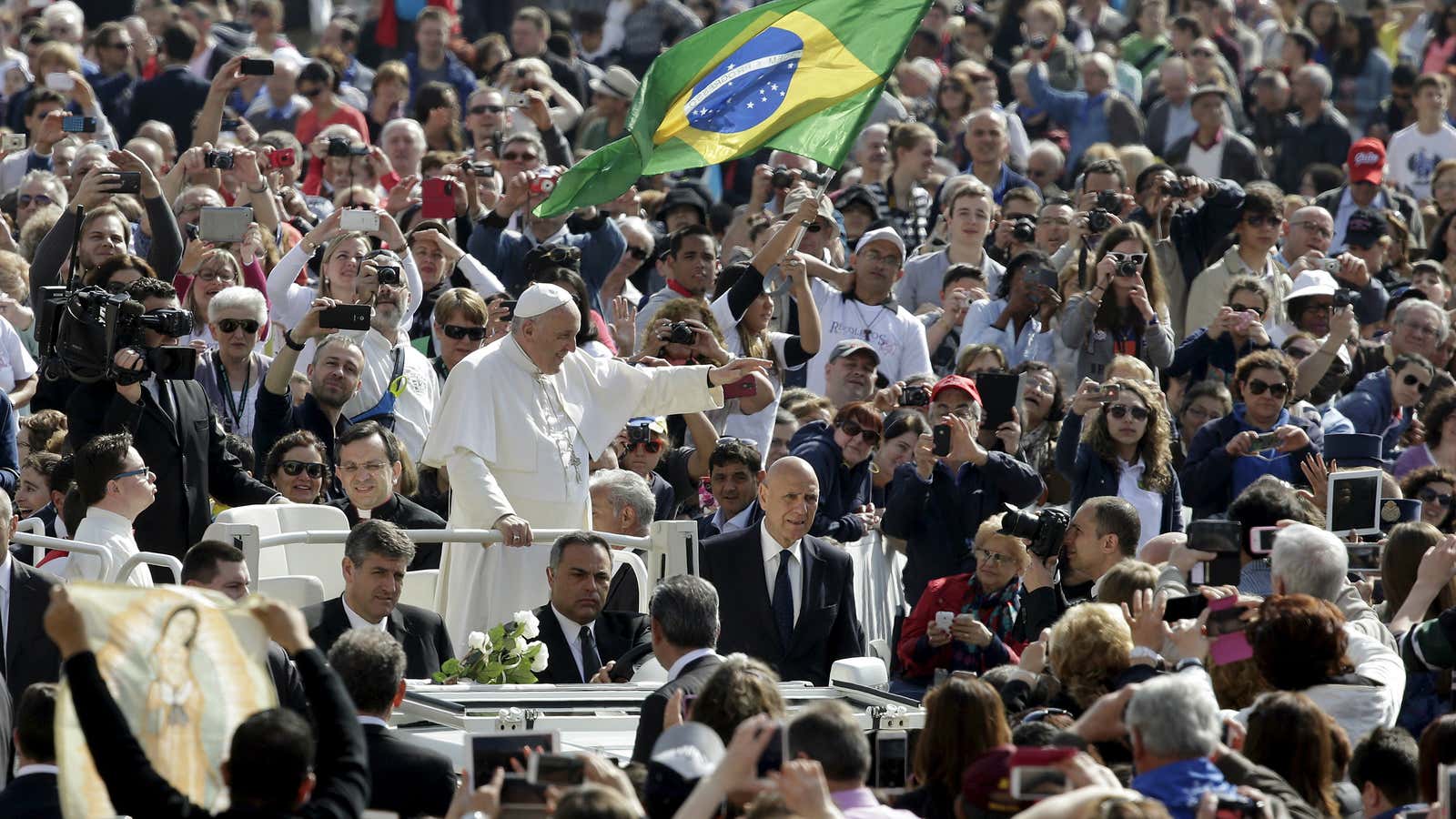In the 1980s, Pope John Paul II became the scourge of dictators the world over, lending succor to people’s power movements that brought down governments in southeast Asia, Latin America, the Warsaw Bloc, and the Soviet Union.
Three decades later, another populist pope—Francis—has embraced climate change activism as a pillar of the Catholic Church’s work on behalf of the world’s poor. The discomfited forces this time: US and UK conservatives who regard climate change as a hoax.
The Pope seems likely to release an “encyclical,” the much-watched letters in which pontiffs lay out official positions, in June. Experts say that he will put the church firmly behind efforts to reduce CO2 emissions, and environmentalists hope that will help them to win a global climate change accord at a United Nations summit in Paris in December.
Given the potential influence an encyclical would have, conservatives are running counter-populist campaigns in an attempt to change the “misled” pontiff’s mind.
Helping to lead the charge against the pope is the Heartland Institute, a US group backed by billionaire Charles G. Koch, one of the main financiers of American conservative causes. In a statement on Heartland’s website, the group’s president, Joseph Bast, says, “The Holy Father is being misled by ‘experts’ at the United Nations who have proven unworthy of his trust.”
Bast adds: “Though Pope Francis’s heart is surely in the right place, he would do his flock and the world a disservice by putting his moral authority behind the United Nations’ unscientific agenda on the climate.”
And Christopher Monckton, a former adviser to UK prime minister Margaret Thatcher, sternly scolded the pope at a April 28 news conference at the Vatican. “You demean the office that you hold and you demean the church whom it is your sworn duty to protect and defend and advance,” Monckton said.
It is unlikely that an encyclical from Francis would have as swift an effect as John Paul II’s work in the 1980s, which helped to oust Philippine president Ferdinand Marcos and validate Poland’s Solidarity movement, whose 1989 triumph was a key domino in the events that ultimately destroyed the Soviet Union.
But US and UK conservatives still fear that Francis could steer some of their own religious followers toward his environmentalist views, and erode some of the skepticism about climate science.




